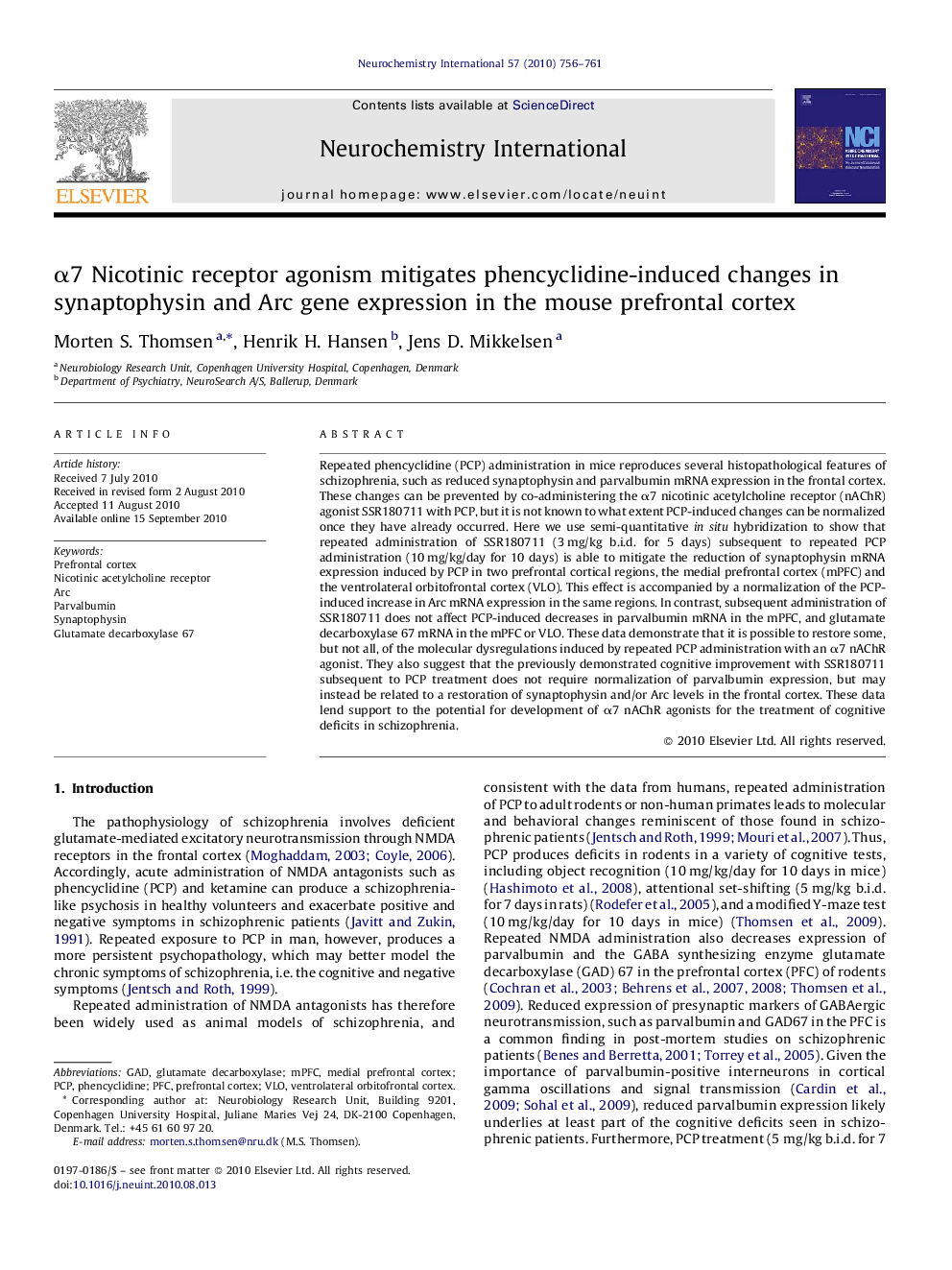| Article ID | Journal | Published Year | Pages | File Type |
|---|---|---|---|---|
| 2200984 | Neurochemistry International | 2010 | 6 Pages |
Repeated phencyclidine (PCP) administration in mice reproduces several histopathological features of schizophrenia, such as reduced synaptophysin and parvalbumin mRNA expression in the frontal cortex. These changes can be prevented by co-administering the α7 nicotinic acetylcholine receptor (nAChR) agonist SSR180711 with PCP, but it is not known to what extent PCP-induced changes can be normalized once they have already occurred. Here we use semi-quantitative in situ hybridization to show that repeated administration of SSR180711 (3 mg/kg b.i.d. for 5 days) subsequent to repeated PCP administration (10 mg/kg/day for 10 days) is able to mitigate the reduction of synaptophysin mRNA expression induced by PCP in two prefrontal cortical regions, the medial prefrontal cortex (mPFC) and the ventrolateral orbitofrontal cortex (VLO). This effect is accompanied by a normalization of the PCP-induced increase in Arc mRNA expression in the same regions. In contrast, subsequent administration of SSR180711 does not affect PCP-induced decreases in parvalbumin mRNA in the mPFC, and glutamate decarboxylase 67 mRNA in the mPFC or VLO. These data demonstrate that it is possible to restore some, but not all, of the molecular dysregulations induced by repeated PCP administration with an α7 nAChR agonist. They also suggest that the previously demonstrated cognitive improvement with SSR180711 subsequent to PCP treatment does not require normalization of parvalbumin expression, but may instead be related to a restoration of synaptophysin and/or Arc levels in the frontal cortex. These data lend support to the potential for development of α7 nAChR agonists for the treatment of cognitive deficits in schizophrenia.
Research highlights▶ PCP reduces parvalbumin, GAD67 and synaptophysin, but increases Arc, mRNA in frontal cortex. ▶ Repeated SSR180711 mitigates the effect of PCP on synaptophysin and Arc in frontal cortex. ▶ Repeated SSR180711 does not affect PCP-induced changes in parvalbumin or GAD67.
